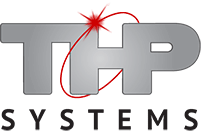THP Systems are excited to be able to share a recent project that we were involved in with Cambridge Consultants. Cambridge Consultants specialise in helping achieve the seemingly impossible, working with their customers on critical scientific and technical projects. Cambridge Consultants were approached by Cambridge University as part of their involvement in the SKA to embark on a journey. The Square Kilometre Array (SKA) project is an international effort to build the world’s largest radio telescope, consisting of two networks of antennas in remote areas of South Africa and Australia with eventually over a square kilometre (one million square metres) of collecting area.
The SKA will initially consist of 200 dishes in South Africa and 130,000 low-frequency antennas in Australia that will enable astronomers to monitor the sky in unprecedented detail and survey the entire sky much faster than any system currently in existence. Cambridge Consultants, contracted by Cambridge University, came to us wanting to test their antenna as part of their work for the international consortium designing the antennas for SKA-low, the Australian component of the SKA. These tests are an important input into the work towards the consortium’s final review in December of this year.
The SKALA4 antenna was mounted on the 25mm thick plywood test base and subject to vertical excitation sweeps over the range 5-200 Hz with 0.1g, 0.2g, 0.5g and 1.0g acceleration amplitude (ie. working up to and including Class 4M4 conditions, as defined in EN 60721-3-4:1995). The 1.0g test was repeated over 60-5Hz, and a 0.25g random frequency test was for completeness.
Watch the testing in action in our video below –
For more information on how THP Systems can enhance your products durability and reliability contact us at [email protected]




